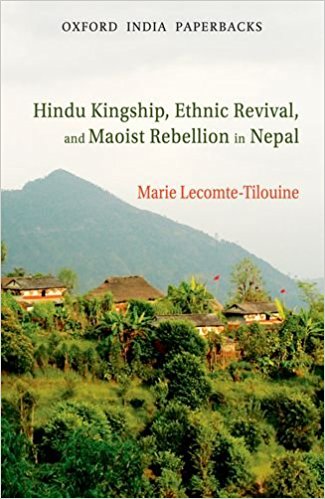As a student of ‘ethno-nationalist’ conflicts in South Asia, it was with a sense of awe and challenge that I watched Nepal’s Maoist revolutionary upsurge unsettle conventional conflict theories. Elsewhere in the region, the dominant pattern was that even socio-economic grievances would get constructed as ethnically driven territorially focused political struggles, that is, mobilization around identity politics. But in Nepal there was a defiant assertion of class subsuming such factors as ethnicity, caste and region. The Maoist led ‘Peoples War’ in Nepal and its revolutionary goal of egalitarian restructuring of the society and polity, was branded by most policy analysts as ‘anchronistic’, as Marie Lecomte-Tilouine reminds us in Hindu Kingship, Ethnic Revival and Maoist Rebellion in Nepal. She draws upon her scholarly work as an anthropologist, to re-interpret the Maoist rebellion through an ethnic lens, and in the process, ends up displacing class with ethnicity.
This collection brings together Marie Lecomte-Tilouine’s essays spanning a decade of her writings from 1996 to 2006 based on field work done in Nepal before the emergence of the Maoist movement. It ranges from accomplished anthropological studies of Nepal’s Hindu kingship, the largest indigenous or janajati group, the Tibeto Mongol Magars, as well as the more contemporary construction of martyrdom in the Maoist cultural imagination. The conceptual motif that holds together this dispersed collection is Lecomte-Tilouine’s thesis that the democracy movement (1990) and the ushering in of a multi-party system, produced ‘two successive, yet interrelated, contestatory movements’—ethnic revivalism and the Maoist rebellion. Racing ahead of the documented analysis, she boldly asserts, ‘the People’s War thus benefited from the ethnic revival and may be viewed as its latest incarnation.’ And tweaking the logic of historical continuity still further, she posits the ‘Maoist leaders as successors to the Shah kings’.

